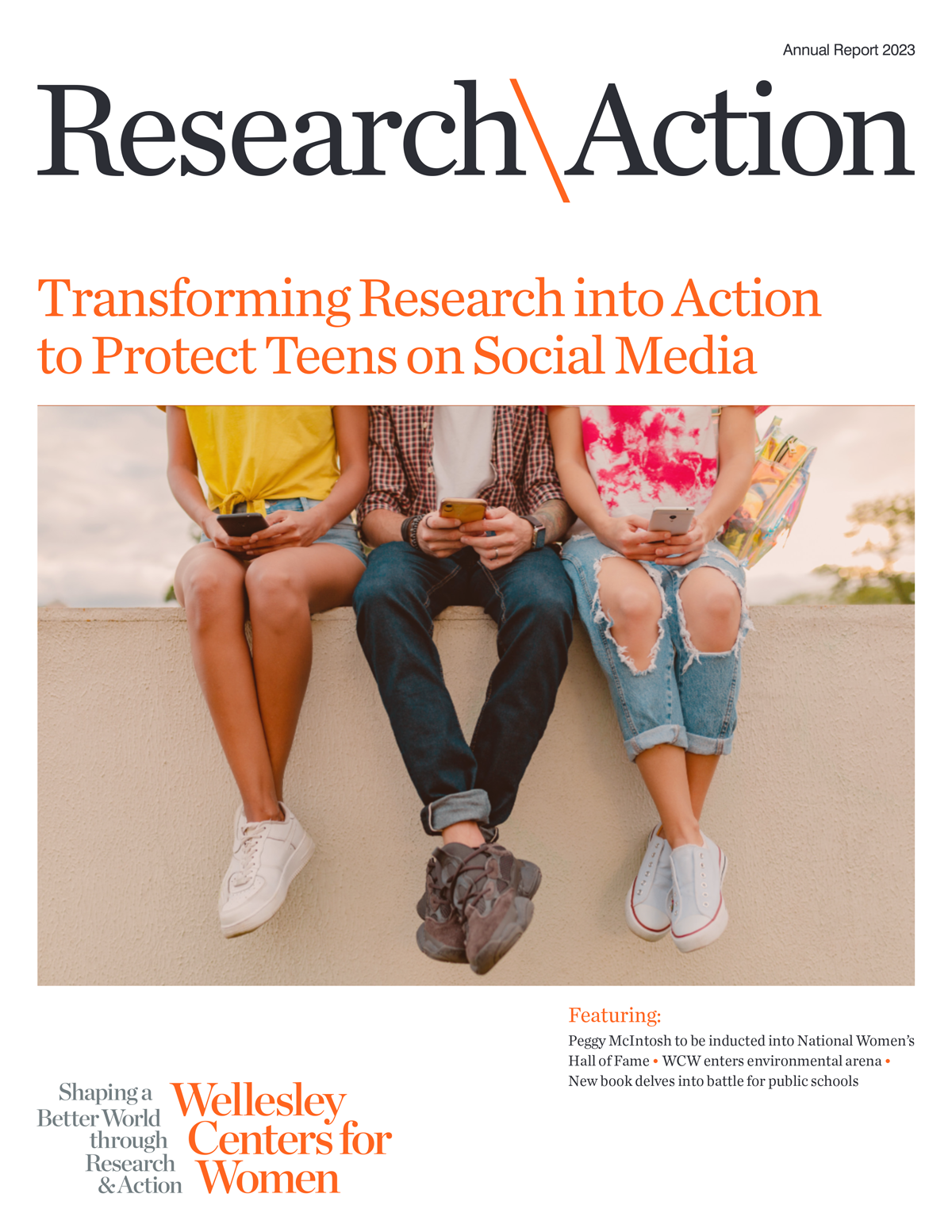 For Senior Research Scientist Jennifer M. Grossman, Ph.D., taking the long view when it comes to research partnerships has paid off.
For Senior Research Scientist Jennifer M. Grossman, Ph.D., taking the long view when it comes to research partnerships has paid off.
Back in 2006-2007, Grossman and then-Senior Research Scientist Sumru Erkut, Ph.D., conducted an initial pilot review of Get Real: Comprehensive Sex Education That Works, Planned Parenthood League of Massachusetts’ (PPLM) comprehensive sex education program for middle schoolers. Building on that connection, they applied to PPLM’s call for proposals to evaluate Get Real and were awarded the contract. From 2008-2013, they conducted a large-scale randomized controlled trial evaluation of the program.
They found that Get Real Middle School was effective in delaying sex among participants—which allowed it to be included on a list of evidence-based programs for teen pregnancy prevention endorsed by the U.S. Department of Health and Human Services (HHS). Then in 2016, Grossman completed a small evaluation of Get Real for Parents, a mobile website that accompanies the middle school curriculum.
With the success of its middle school program, PPLM began developing a Get Real High School curriculum and sought funding for an evaluation of it. In 2015 and again in 2020, the organization and Grossman jointly submitted funding proposals to HHS but were unsuccessful. Finally, this year, the third time was a charm. Grossman received a $1.4 million subaward to serve as the evaluation partner on this teen pregnancy prevention project, in partnership with PPLM as the program developer and Planned Parenthood of Greater Ohio, which will implement Get Real in Cleveland, Ohio public high schools.
It’s essential to use scientific research to make evidence- based decisions about what works and what doesn’t.
“It was a long road to get here, but it was so worth it to stay on that road,” said Grossman. “I’m thrilled to be able to move forward with this work and excited to see how the next steps go as we begin this collaboration.”
Get Real is grounded in social emotional learning and family engagement, and is a comprehensive, inclusive, trauma-informed, and culturally responsive sex ed curriculum. Grossman and her team will assess the curriculum’s impact on delaying sex and increasing safer sex behaviors, such as using condoms, among Cleveland high school students. If it is found to be effective, the Get Real high school curriculum will join the Get Real middle school curriculum on HHS’ list of evidence-based programs for teen pregnancy prevention.
Grossman leads WCW’s Family, Sexuality and Communication Research Initiative, and has spent her career studying adolescent development, sexual health, and risk-taking, with an emphasis on the role of families. She is also developing an intervention program to help fathers talk to their kids about sex, funded by the Eunice Kennedy Shriver National Institute of Child Health & Human Development of the National Institutes of Health.
“Research has shown that comprehensive sex education is critical to protecting teens’ health, and both schools and families play important roles,” said Grossman. “It’s essential to use scientific research to make evidence-based decisions about what works and what doesn’t, so I’m glad to help further that process through this project with Planned Parenthood.”
This project is supported by the Office of Population Affairs in the Office of the Assistant Secretary of Health of the U.S. Department of Health and Human Services (HHS) as part of a financial assistance award totaling $1,000,000 with 100 percent funded by OPA/OASH/HHS. The contents are those of the author(s) and do not necessarily represent the official views of, nor an endorsement by, OPA/OASH/HHS, or the U.S. Government. For more information, please visit https://opa.hhs.gov/.


